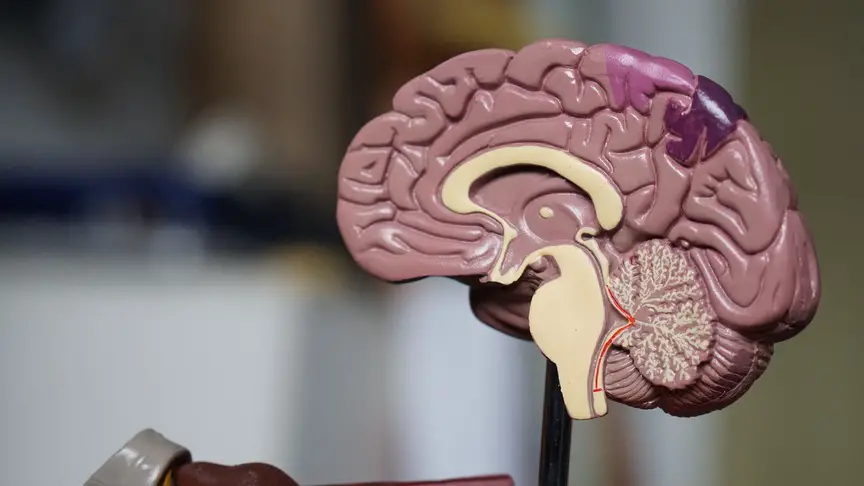Is Hiking Good For Your Brain? (Yes, Immensely.)

We know the allure of nature. We are constantly searching for the next great hike to better our skills and challenge ourselves. But did you know that hiking is also good for your brain? Studies have shown that hiking can improve cognitive function, memory, and focus. Keep reading to learn more about how hiking can benefit your brain!
Quick Links
What Does Hiking Do To Your Brain?
We all know that spending time in nature can be restorative. We have felt it ourselves when we take a break from our hectic lives to go for a hike in the woods. Being in nature has been shown to reduce stress, anxiety, and even depression. But did you know that hiking specifically can also improve your cognitive function?
According to neuroscientist Daniel Levitin, frequent hikers have increased activity in the hippocampus, the part of the brain responsible for memory and learning. According to him, “when you’re out in the woods, anything can happen.” Essentially, you have to stay alert, which can lead to heightened brain activity. In addition, the participants in his studies also performed better on tests of memory and executive function after the hike than they did before.
In another study, older adults who took nature walks showed increased brain connectivity and improved memory test scores. The nature walkers also had less blood flow to the part of the brain that is responsible for Alzheimer’s disease.
So, what does this all mean? Essentially, hiking can help improve your memory, learning, and executive function. It may also reduce your risk of Alzheimer’s disease. Not too shabby for a day in the woods!
Does Hiking Make You Smarter?
You know those apps that claim they can make you smarter? Well, they have nothing on hiking!
Okay, okay – I won’t make any claims here that hiking will make you a genius. But as I said, it has been shown to improve cognitive function in a variety of ways.
For example, a 2019 study from the University of Chicago concluded that more green space in urban areas is associated with better cognitive development in children. The study found that it promoted greater self-control behaviors. In addition, adults situated near more green spaces showed better attention and memory skills. Lastly, the experiments also found that those living in less green space had higher levels of cortisol and a reduced attention span.
So does it make you smarter? Maybe not. But being in nature could help you focus a bit better and have better self-control. But here’s the thing. The difference between most people (not all) is based on the decisions they make. So when it comes time to make “smarter” decisions, you’ll be in a better position to do so if you spend time hiking in nature.
How To Improve Your Brain Function While Hiking
Now that we know how good hiking can be for your brain, let’s talk about how to get the most out of it. Here are a few tips:
Get Off The Beaten Path
Take the time to explore new trails. This will not only help you see new things, but it will also keep your mind active as you navigate your way around. When you are forcing your brain to operate in new environments, it helps to create new neural pathways.
Leave Your Phone Behind
This one may be hard for some of you, but I promise it will be worth it! When you are hiking without the distractions of your phone, you can focus more on your surroundings and really take in all that nature has to offer.
Talk To Someone
This one is optional, but it’s always nice to hike with a friend or family member if you can. Talking to someone as you hike can help improve your focus and attention, and it also helps pass the time.
Take Breaks
Make sure to take breaks throughout your hike. This will help you stay focused, but it will also give your body a chance to rest.
The Relation Between Physical Excercise and Cognitive Functions
Aerobic exercise is any type of cardiovascular conditioning that raises your heart rate and gets you moving and sweating for a sustained period. When you engage in aerobic exercise, your heart and lungs work harder to supply the additional oxygen your muscles demand. Regular aerobic exercise will help improve your overall health and fitness, including your brain function.
Research has shown that aerobic exercise can help improve memory, reasoning, and executive function. It’s also been said to help reduce the risk of developing dementia and Alzheimer’s disease. In one study, older adults who participated in an aerobic exercise program for six months showed improvements in memory and executive function. The participants in the study also had increased levels of brain-derived neurotrophic factor (BDNF), a protein that promotes the growth of new neurons and the protection of existing ones.
The reason I bring this up is that many people think that they need to do some sort of mental exercise to improve their brain function. (Like those games & apps I mentioned.) And while that may be true to some extent, the fact is that physical exercise is just as important, if not more so.
And when you combine the physical and sometimes strenuous activity of hiking with the mental benefits of being in nature, you have a recipe for success.
Conclusion
Hiking is a great way to improve your brain function. It gets you off the beaten path, forces you to navigate new environments, and helps you focus on your surroundings. You’ll be rewarded with better mental clarity, improved self-control, better memory, and the list goes on! Who knew there was more to hiking than taking some beautiful shots for IG? 😉






